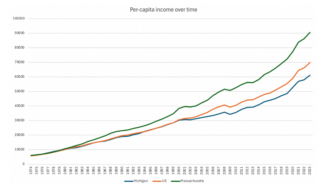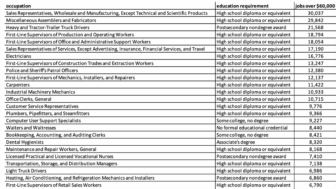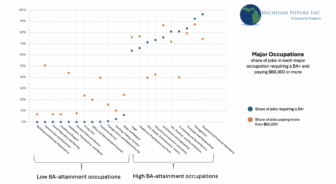![]() This post was first published in July 2017. As America confronts the reality of structural racism, it is clear we need to put on the table topics that have been off the table for far too long. One of those uncomfortable conversations we need to have is about segregation. All the ways the upper middle class has put in the place policies to keep particularly low-income African Americans from living in their neighborhoods and attending school with their kids.
This post was first published in July 2017. As America confronts the reality of structural racism, it is clear we need to put on the table topics that have been off the table for far too long. One of those uncomfortable conversations we need to have is about segregation. All the ways the upper middle class has put in the place policies to keep particularly low-income African Americans from living in their neighborhoods and attending school with their kids.
America has always billed itself as a land of opportunity, where anyone with grit and a dream could succeed. Perhaps because my ancestors were slaves, I have always been aware of the American Dream’s invisible asterisk. In ways big and small, this country has always given spoken and unspoken preferences to some and thrown up visible and invisible roadblocks for others.
In a recent column David Brooks of the New York Times explores how modern upper middle class and wealthy families – terrified that the wage stagnation and shrinking job options that have dogged less affluent Americans could threaten their children – have become fanatical about building exclusive networks to protect opportunity for their children. “So what?” you may be thinking and Brooks admits that the instinct for parents with means to give their children a leg up is natural. But Brooks accuses modern wealthy parents of fortifying structural barriers that are specifically designed to lock less affluent children out of opportunities to thrive.
Brooks cites Dream Hoarders:How the American Upper Middle Class Is Leaving Everyone Else in the Dust, Why That Is a Problem, and What to Do about It, a recently-published book by Richard Reeves of the Brookings Institution. Reeves believes that housing and construction policies that effectively wall off the rich from their less affluent neighbors is the most serious threat to America’s standing as a nation where equal opportunity is a sacred value. Reeves believes educational inequality is another serious threat. Beyond the obvious educational advantages that accrue to wealthy people such as access to strong schools with great teachers and impressive resources, affluent students also have access to college application-boosting activities such as international travel and unpaid internships.
Brooks: “It’s no wonder that 70 percent of the students in the nation’s 200 most competitive schools come from the top quarter of the income distribution. With their admissions criteria, America’s elite colleges sit atop gigantic mountains of privilege, and then with their scholarship policies they salve their consciences by offering teeny step ladders for everybody else.”
When Michigan Future introduced our first-ever policy agenda earlier this year, we argued that if Michigan is to ever return to prosperity, policy makers need to focus on strategies that raise living standards for all Michiganders. It’s important because while the Big Three automakers have returned to prosperity, Michigan families have not. Michigan currently ranks 32nd in the nation for per capita income and according to an April 2017 report by the United Ways of Michigan, 40 percent of Michigan households cannot afford to pay for basic needs. Now more than ever, state lawmakers should be laser focused on strategies to give more Michigan families access to opportunity and prosperity.
One strategy to bridge the gulf between haves and have-nots in Michigan is by introducing inclusive zoning policies with the goal of stimulating economic diversity in Michigan’s cities, towns and school districts. Michigan also needs to boost birth-through-college educational attainment for all students, not just those who are educated in affluent suburban or private schools. Most importantly, our leaders need to demonstrate that they care that current policies are leaving large segments of Michiganders behind.
No one is telling wealthy parents that they should stop looking out for the interests of their children. But Michigan’s standing as a place where families want to live and businesses want to grow will continue to be under pressure unless policy makers leverage strategies that put opportunity within the reach of all Michiganders.







